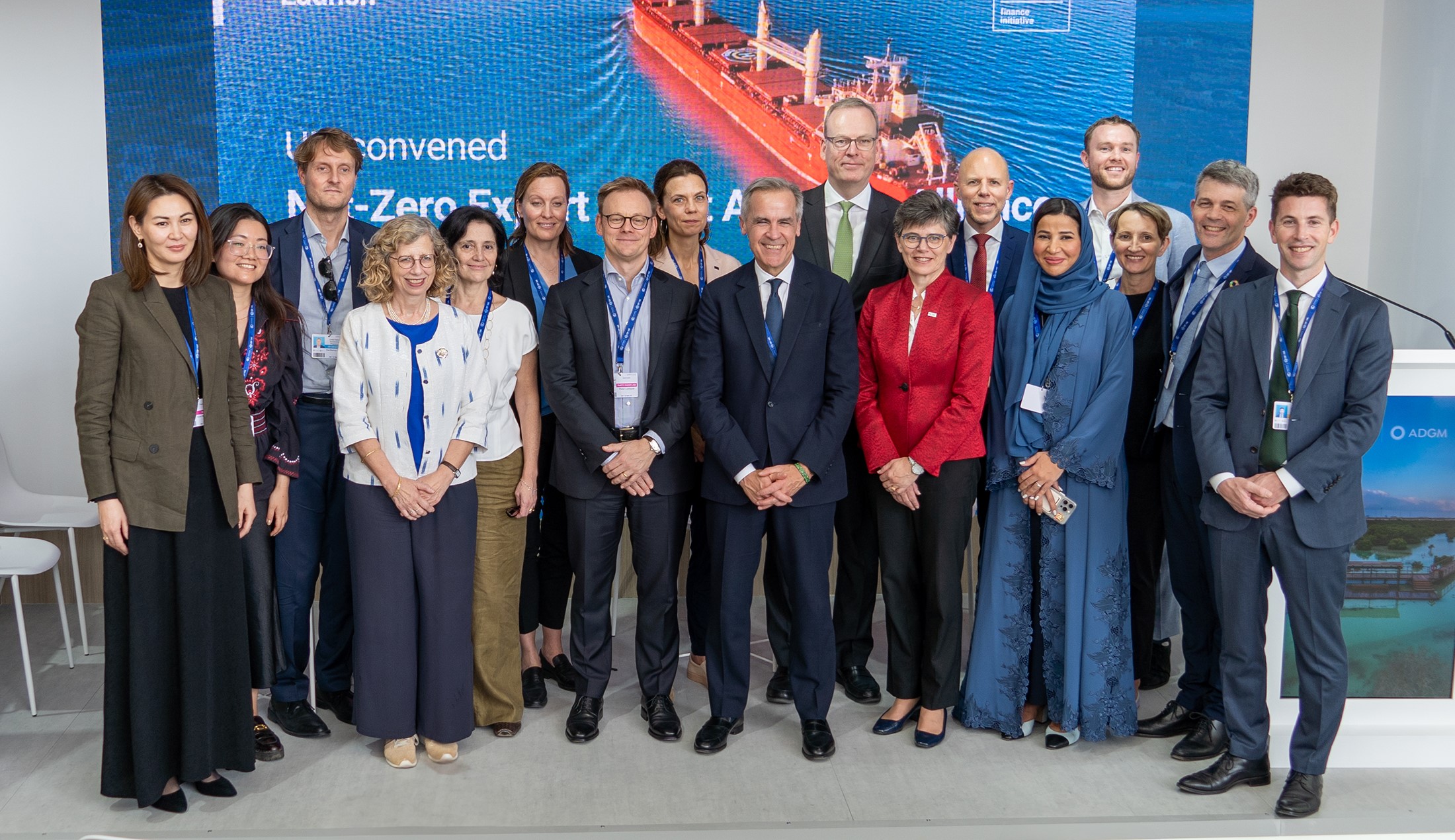
Published
- Sustainability
- Financing
- Trade
Trade takes centre stage at COP28
To deliver more sustainable global trade, eight leading ECAs unveiled a new net-zero alliance in Dubai. “Public finance has been the missing piece in the net-zero financial landscape,” commented a UN source.
The recent COP28 meeting in Dubai reportedly gathered over 100,000 participants, or three times as many as COP26 in Glasgow – a clear sign that climate change occupies the top spot on the global agenda.
Karin Wessman, Head of Sustainability at EKN and Chair of the Berne Union Climate Working Group, found the trip worthwhile. “Inclusion and openness characterized the atmosphere and the fact that many meetings were not restricted facilitated attendance and networking,” she says ands adds: “It has been great to witness the level of commitment from so many sectors, ranging from exporters and financiers to government agencies and multilateral institutions.”
EKN is attending COP28 to raise awareness of how export finance can help fund transitional investment and inspire collaboration across sectors. “We all have to work together to manage the transition required to meet the climate challenges,” Wessman points out and adds, “My impression in Dubai is that private sector companies are leading the way in developing and implementing solutions to the net-zero challenge.”
Victor Carstenius, Senior Analyst at EKN, points out that, “Swedish companies offer what the world requires, such as high-tech solutions that are both innovative, high quality and cost effective.
Some examples are electric trucks and buses, electric mining equipment, transmission infrastructure for offshore wind farms and solar parks, non-fossil fertilizers and biofueled public transport.
Dedicated “Trade Day”
Wessman and Carstenius argue that export credits are comparatively unknown, given that the global export finance industry supports up to 28 trillion USD worth of financing annually. “We need to change this. Large companies know about us, but we can also help finance innovative startups that may hold the key to future solutions”, says Wessman and adds: “At EKN, we are working hard to develop new partnerships within the export finance sector and new products that support investments in climate-aligned technology. We also believe that both public and private buyers in developing markets still have an opportunity to increase their use of export credits."
For the first time at a COP summit, the subject of trade was assigned a dedicated day in Dubai. “Trade Day” highlighted trade’s potential as a catalyst for climate-smart development, focusing on issues like value-chain decarbonization and resilience.
Wessman notes that export credits are increasingly viewed as an integrated aspect of a bigger financial package and not as an isolated silo. “Export credit agencies contribute to the crowding in of other types of financing, but also serve as sustainability watchdogs.”
EKN takes into account sustainability beyond the goods and services of a particular deal, to identify the full impact. “This includes human rights, health and safety, impact on biodiversity, as well as ensuring that relocated individuals are properly compensated. Such SDG contributions are always part of the ECA package,” says Wessman.
COP28 also witnessed the launch of the Net-Zero Export Credit Agencies Alliance (NZECA), the first net-zero alliance comprising public finance institutions globally. In working to deliver net-zero economies by 2050, the NZECA will help decarbonise global trade and facilitate joint action from public and private finance.
“Confirms a positive trend”
At the outset, the alliance includes EKN and Svensk Exportkredit (SEK) from Sweden and ECAs from Canada, Denmark, Kazakhstan, Spain, UAE and UK, in partnership with the University of Oxford and the UN Environment Programme (UNEP). Combined, the alliance members supported an estimated US$120 billion in global trade in 2022 alone, providing finance and other services such as insurance and guarantees to facilitate local companies’ international exports.
“The new alliance confirms a positive trend and helps create a level playing field among more parties commit to net-zero, for example by phasing out support to fossil fuels. ECAs have the power to raise the bar in terms of sustainability,” says Carstenius.
EKN, SEK and other ECAs have already phased out their support of fossil fuels and work hard to scale up their support to renewable solutions. “It is great to see what we can accomplish together with ECAs from countries that share our beliefs,” adds Wessman.
At UNEP, Executive Director Inger Andersen agrees: “Public finance has been the missing piece in the net-zero financial landscape. ECAs are in a strong position to deliver more sustainable global trade and to complement the work already being undertaken by the private finance sector, helping to address market gaps to deliver net-zero economies by 2050.
NZECA members have committed to transition all operational and attributable greenhouse gas emissions from their business activities to align with pathways to net zero by mid-century, or sooner, including CO2 emissions reaching net zero by 2050 at the latest, consistent with a maximum temperature rise of 1.5°C above pre-industrial levels by 2100. Alliance members will set and publicly disclose intermediate science-based targets for 2030 or sooner for the highest emitting sectors in their portfolios.
Beyond alliances with bold visions, what’s required on a more personal level to reach the net-zero goal? “We need to be impatient and persistent at the same time,” Wessman concludes.
